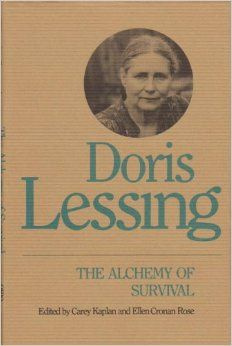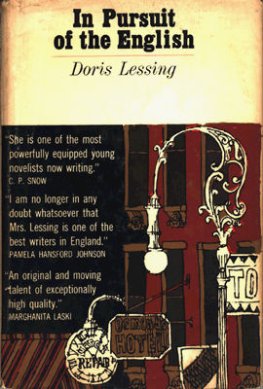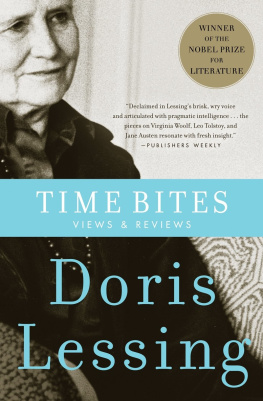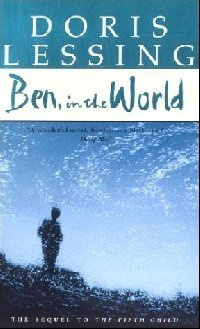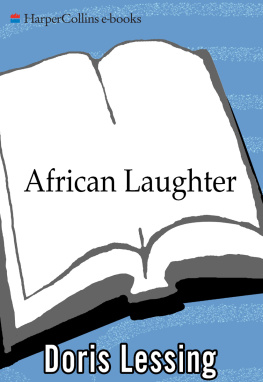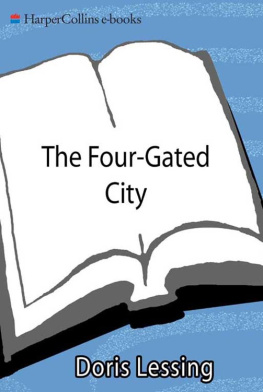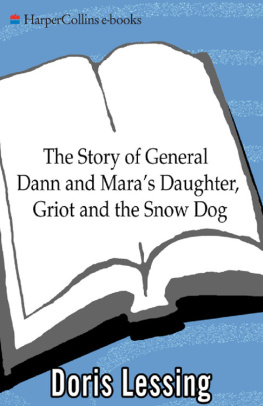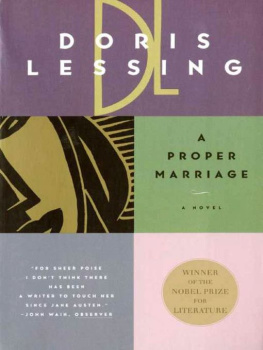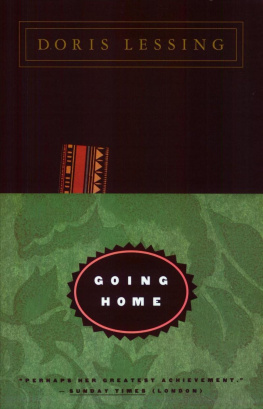Annotation
In addition to the cooperation that distinguishes Lessing criticism, its other remarkable quality is its complex eclecticism, arising from this widespread readership. No single scholar has said, or, indeed, tried to say, the definitive word on Lessing. Instead, recognizing that one of Lessing's dominant and most poignant themes is the impossibility of absolute definition, the fragmentary nature of reality, the modern world's resistance to assignment of meaning, academics have tacitly engaged in a critical endeavor that is always seeking, never static. Because Lessing's books never allow the reader to settle down comfortably, respectful scholars, learning life stances as well as literature from Lessing, have also never settled but have approached the books and stories from all available critical directions: Jungian/archetypal; Marxist; Freudian; reader response; feminist; New Critical; semiotic and deconstructionist and combinations of several of these. None have contained Lessing's work but all have elucidated it.
The eleven essays we have assembled represent both the diversity of approaches scholars have taken to Lessing's oeuvre since 1971, when they began meeting to share their views at the annual MLA convention, and the creative differance of their colloquy. Although by now you are probably eager to read the essays we have distilled from the lively ferment of Lessing panels at the last fifteen annual MLA conventions, we would like you to defer that pleasure in order to share our celebration of the tenacious vitality of a unique community of scholars, united paradoxically by their cordial, collegial tolerance of each other's different responses to a body of work that has changed lives as it has challenged the critical establishment.
Carey Kaplan and Ellen Cronan Rose, the editors
Doris Lessing: The Alchemy of Survival
Doris Lessing: The Alchemy of Survival
EDITED BY Carey Kaplan and Ellen Cronan Rose
Ohio University Press
Copyright 1988 by Ohio University Press.
Printed in the United States of America.
All rights reserved.
Ohio University Press books are printed on acid-free paper.
Library of Congress Cataloging-in-Publication Data
Doris Lessing: The Alchemy of Survival.
Includes bibliographies.
1. Lessing, Doris May, 1919-Criticism and intrepretation. I. Kaplan, Carey. II. Rose, Ellen Cronan, 1988
PR6023.E833Z62 1988 823'.914 87-34777
ISBN 0-8214-0891-7
INTRODUCTION (by Carey Kaplan and Ellen Cronan Rose)
1. Lessing and Her Readers: Celebrating Difference
ON APRIL 25, 1984, DORIS LESSING APPEARED ON THE popular nightly news program, National Public Radio's "All Things Considered," where interviewer Susan Stamberg pressed her to account for her move from traditional realist fiction to the "space fiction" of Briefing for a Descent into Hell and the Canopus in Argos series. "About your shift from realistic writing to fantasy writing or visionary writing," Stamberg asked, "do you have some sense of what the role of the writer should be?.. Is it to show us the world as it is, or the world as it should be, or the world as it might be?" "Why do you make it 'or, or, or?' " Lessing retorted. "It could be 'and, and, and.' " Later she returned to this point, suggesting that "either/or" has "very little to do with how things really are Because you know that's how the computer works. They call it the binary mode, don't they? The this or that, the switch. This or that. I'm asking myself, is the computer, the way it functions, a model of the human mind?"
The fiction of Doris Lessing, which rejects simple binary opposites and insists on a construction of reality that rejects nothing, limits nothing, and includes everything by saying "and, and, and," rather than "either/or," exemplifies differance which Jacques Derrida insists is "neither a word nor a concept" underlies much of Lessing's writing concepts, ideas, and themes are fragmented and dispersed throughout each book and throughout the body of her work, recurring metamorphosed in new books, requiring adaptations of understanding on the part of readers. Because an image or a theme may recur at any time, transformed and reworked, the work resists final analysis. For example, at the beginning of Martha Quest, the first book in the Children of Violence series, Martha has a vision of the ideal city, geometrical, hierarchical, multiracial, full of gardens and gentle people. In the context of Martha Quest and subsequent books, that vision has significance and weight both in Martha's life and in the world of the whole Children of Violence series. But it is not until The Four-Gated City that Martha's original vision attains a comprehensive and ironic resonance, thus recreating the meaning of the first four books of the series in its light. The reader is asked to balance the vision of the city against the reality of war-gutted London and against Mark's dismal city of refugees. With this final reworking of the theme, the exhausted critic may sit back and sigh, "Well, at least I've pegged that motif." No such luck. For the city continues to recur confusingly and disturbingly as an implicit irony in books like Briefing for a Descent into Hell and Memoirs of a Survivor. And perhaps, but not certainly finally, the city looms once more in Lessing's Canopus novels, geometrical, charmed, magnetic, magical, doomed the image folding in on itself and expanding like some organic, respirating creature. Such scattered meaning, such rejection of definition, such differance, demands delay and postponement.
Lessing's work can be viewed as a whole or as a series of -4- interrelated wholes (Children of Violence; the Canopus in Argos: Archives books; the stories; the Jane Somers diaries). It is still in the process of becoming, still full of surprises, play, audacity, dogma, recantation, and grouchy dismissal of critical appraisal. The critic cannot even pin down Lessing's identity, which shifts within the person Doris Lessing from self-declared hard-core realist to self-declared, equally hard-core fantasist; from Communist to student of R.D. Laing to student of Sufism; from a "small, personal voice" to the spokesperson of the cosmos; from adolescent girl to aging woman. Nor can the critic be sure that Doris Lessing is Doris Lessing. Recently she fractured into Jane Somers. And what of Retreat to Innocence which Lessing has disowned but which ineluctably exists? Within individual books, identity shifts mystifyingly, most notably in The Golden Notebook in which Doris Lessing writes about Anna Wulf who writes about Anna Wulf who writes about Ella who writes about a nameless suicidal young man.
Clearly (or perhaps obscurely) meaning in the works of Lessing never sits still. Because Lessing refuses certainty, the critic too treads quicksand.
Lessing is an alchemical writer. More than any other major twentieth-century writer excepting, possibly, D.H. Lawrence Lessing challenges her readers and changes them; alters their consciousnesses; radicalizes their sexual, personal, and global politics. She writes, as John Carey noted in the early sixties, about certain themes specific to late-twentieth-century consciousness: "Race; the conflict of the generations; the man woman relationship; the problems of the creative artist; and politics."
Lessing's books are striking, too, and demand fresh critical approaches because in them women prevail and have futures. Lessing, more than any other writer, has freed women from the literally dead endings usually available for female protagonists through the beginning of the twentieth century: suicide, death, madness, marriage (and a vague, unspecified happily-ever after). Lessing mocks this tradition and reconstitutes it. The novel-within-a-novel " Free Women," which is the frame for the notebooks of

